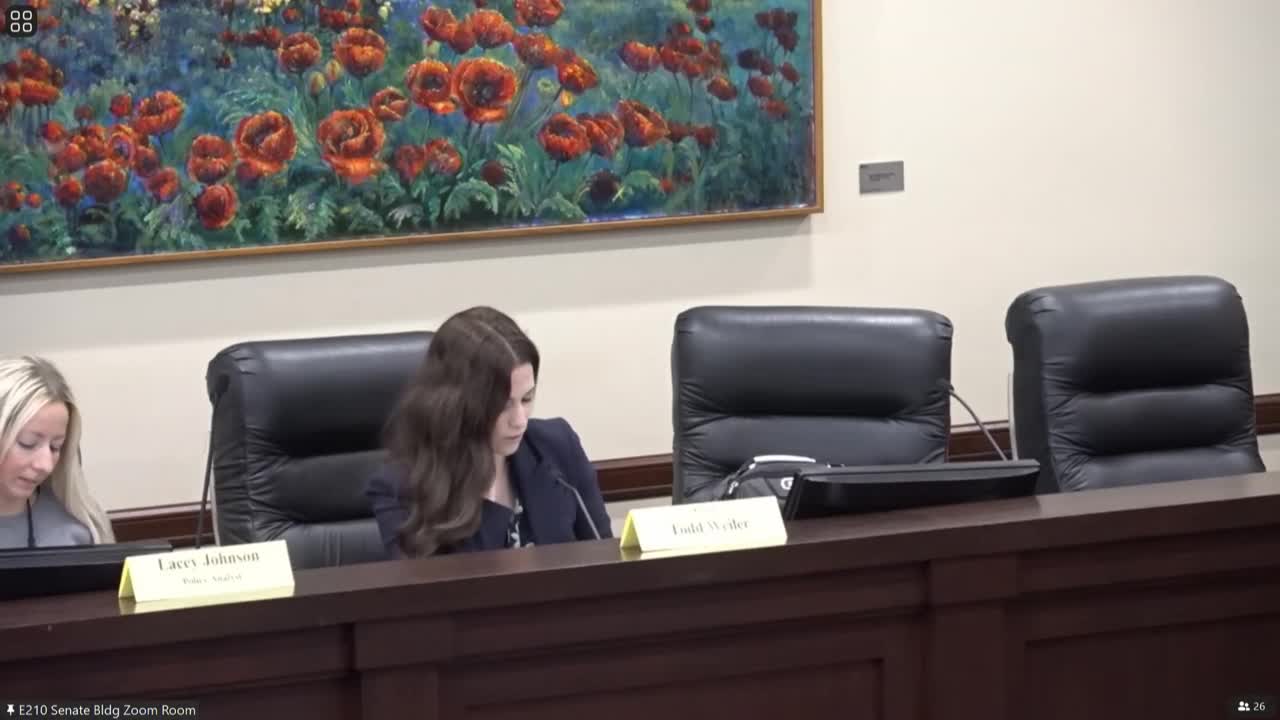Committee advances bill to require copying and return of seized personal computers within 30 days
Get AI-powered insights, summaries, and transcripts
Subscribe
Summary
The committee adopted a first substitute to require that law enforcement make a forensic image of a seized personal computer and return the physical device within 30 days, and advanced the measure with a recommendation to the Senate after debate over passwords, imaging delays and resource constraints.
The Senate Judiciary Committee adopted a first substitute and later voted to favorably recommend Senate Bill 252, a measure intended to limit prolonged retention of seized personal computers by law enforcement and prosecuting agencies.
Sponsor Senator Weiler said the bill responds to frequent situations in which law enforcement holds devices for months or years after seizures, including instances in which businesses lost access to critical files after a device was taken in an investigation. The first substitute requires a forensic image be made of a seized personal computer and requires return of the physical device to the owner or authorized representative within 30 days, except where limited by specified exceptions (for example, contraband such as child sexual abuse material or ongoing evidence-critical operations). The substitute also bars conditioning return of devices on the owner consenting to a search or providing passwords.
Law enforcement witnesses told the committee they share the goal of timely returns but warned that imaging and decryption can take far longer than 30 days given current backlogs and encryption technology. Nate Mudder, acting director for law enforcement at the Attorney General's Office, said encryption and passkeys sometimes require months to circumvent; Stuart Young, criminal deputy attorney general, said the RCFL lab currently has a backlog of about one year and that updates to forensic tools can yield additional recoverable data months or years after an initial mirror. Young cited a cryptocurrency case where an updated tool recovered additional assets two years after the initial imaging.
Sponsor Weiler accepted a verbal amendment in committee to change an initial 72‑hour return deadline to 30 days. The committee discussion also covered the relationship between imaging and evidence preservation; law enforcement explained that best practice is to create an image (a mirror copy) and preserve that image as the evidentiary baseline.
After discussion the committee moved and voted to favorably recommend the first substitute as amended; committee members indicated support but raised fiscal and resource concerns. Sponsor Weiler said he would continue to work with law enforcement to address fiscal and technical issues before the bill advances further.
Outcome: Committee adopted first substitute SB 252 as amended and favorably recommended the bill; the committee recorded the substitute and amendment votes as passing but did not record a numeric committee tally for the final recommendation in the transcript.
